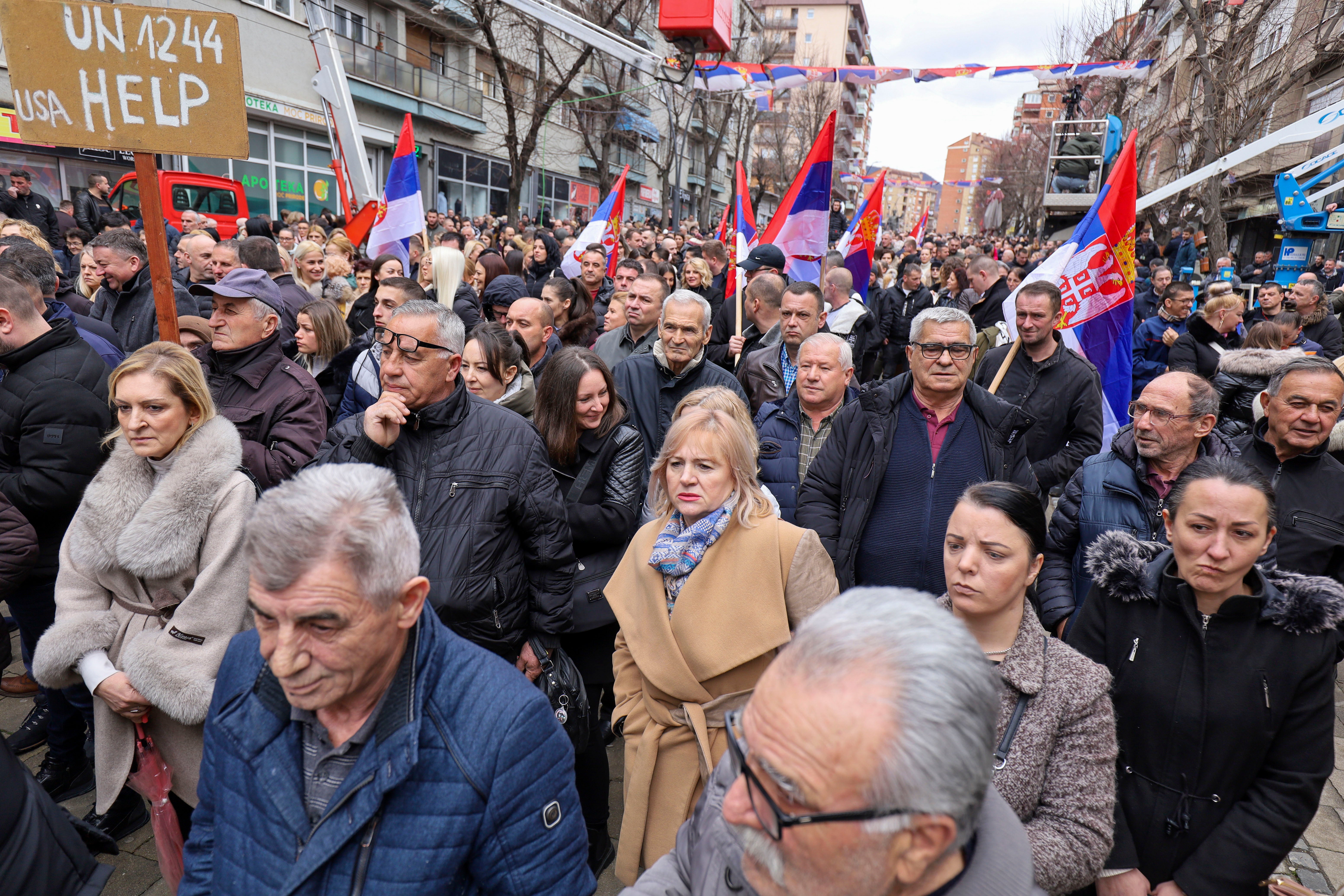Kosovo will conduct a nationwide census that includes surveying the ethnic Serb minority
Kosovo’s government has begun its first nationwide census since 2011 which will include surveying the ethnic Serb minority in the north

Your support helps us to tell the story
From reproductive rights to climate change to Big Tech, The Independent is on the ground when the story is developing. Whether it's investigating the financials of Elon Musk's pro-Trump PAC or producing our latest documentary, 'The A Word', which shines a light on the American women fighting for reproductive rights, we know how important it is to parse out the facts from the messaging.
At such a critical moment in US history, we need reporters on the ground. Your donation allows us to keep sending journalists to speak to both sides of the story.
The Independent is trusted by Americans across the entire political spectrum. And unlike many other quality news outlets, we choose not to lock Americans out of our reporting and analysis with paywalls. We believe quality journalism should be available to everyone, paid for by those who can afford it.
Your support makes all the difference.Kosovo's government began Friday its first nationwide census since 2011 which will include surveying the ethnic Serb minority in the north, at a time when tensions with neighboring Serbia are high.
The Agency of Statistics is conducting the 12-million euro ($13 million) census, originally set to take place in 2021 but was postponed due to the coronavirus pandemic.
Some 4,400 surveyors will interview residents in person from April 5 until May 17 to cover demographic and socioeconomic indicators that “will take Kosovo a step ahead toward integration into the European Union,” according to the agency's website.
The Kosovar government, the EU's statistical office, Eurostat, U.N. organizations and the World Bank are funding the census which will tally the number of people residing in the country, family households, their education and employment, as well as the number of locals living abroad. Surveyors will also ask interviewees about damages suffered during the 1998-1999 war and if they have relatives who died or were tortured at the time.
Kosovo was a former Serbian province until a 78-day NATO bombing campaign in 1999 ended a war between Serbian government forces and ethnic Albanian separatists in Kosovo and pushed Serbian forces out. Belgrade does not recognize Kosovo’s 2008 independence.
Hazbije Qeriqi, the agency spokesperson, said they hoped for "a positive response from everybody.”
In 2011 Kosovo had 1.74 million registered residents, of which nearly 1.5%, or about 26,000, are ethnic Serbs.
Prime Minister Albin Kurti called on the Serb minority Wednesday to take part in the census.
“When we make our plans for subsidies, investments, work, education ... the health system, we should have the state of the population reflected in the budget," he said.
Serbs in the northern part of the town of Mitrovica were optimistic about taking part in the census, considering it important to know how many Serbs and other nationalities live in Kosovo.
”I know the census has started, and I think everyone who lives here (in Kosovo) should take part, especially us (Serbs),” said Nada Brkljac, a resident in the north where most of Kosovo's ethnic Serbs live.
Kosovo’s recent decision to ban ethnic Serbs from using the Serbian currency — the dinar — locally has increased tensions and is threatening to cause chaos. The dinar is widely used in Serbian-run institutions, including schools and hospitals.
Kosovo and Serbia want to join the EU. The 27-nation bloc has facilitated a dialogue to normalize ties between the two that has been riddled with hindrances, fueling Western concerns about regional tensions escalating as a full-scale war rages in Ukraine.
Brussels has warned that the refusal of the two sides to compromise on several issues is jeopardizing their chances of EU membership.
___
Semini reported from Tirana, Albania.
___
Follow Llazar Semini at https://x.com/lsemini